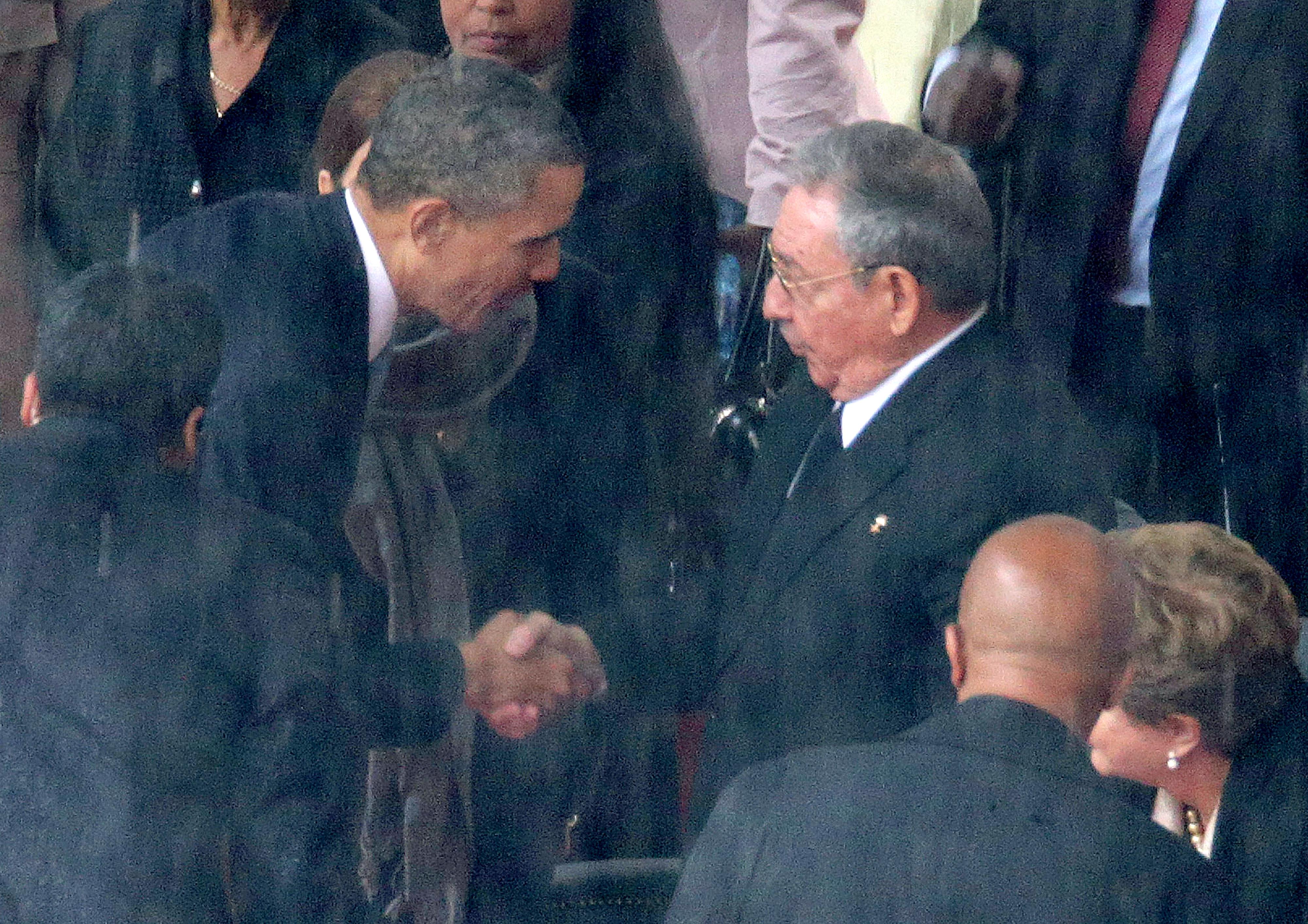There may come a day when words like historic and unprecedented aren’t necessary every time the leaders of the United States and Cuba exchange pleasantries. But we’re not there yet. Both adjectives apply to this weekend’s planned meeting between President Obama and Cuban President Raúl Castro.
The two leaders spoke by phone Thursday night, shortly after their arrival in Panama for the Summit of the Americas. The regional meeting will be the setting for a highly anticipated meeting on Saturday. It will be the first time Cuba is participating in the summit, which was originally intended as a forum for the region’s democracies. Thursday also saw the highest-level official meeting yet between the two governments when Secretary of State John Kerry sat down with Cuban Foreign Minister Bruno Rodríguez.
Thursday’s phone call was the second between the two leaders. The first was a 45-minute conversation shortly before the Dec. 17 announcement of the restoration of diplomatic ties between the two countries. Before that, the two had shaken hands briefly at Nelson Mandela’s memorial service in 2013.
That handshake was only the second one between U.S. and Cuban leaders since the Castros came to power. Raúl’s brother and predecessor Fidel had a brief encounter, including a handshake, with Bill Clinton at a summit in New York in 2000. There was no photo of that meeting, and the White House initially denied the handshake had occurred. The greeting came shortly after the Elián González controversy, when a 6-year-old refugee whose mother had died was forcibly returned to his father in Cuba. Secretary of State Madeline Albright was careful to clarify that it had been a “chance encounter that Mr. Castro initiated.”
Dwight Eisenhower set the precedent for non-interaction with the Castro regime when he snubbed Fidel during the Cuban leader’s uninvited 1959 visit to the United States shortly after coming to power. He did get a brief sit-down with Vice President Richard Nixon, who came away with the impression that Castro was “either incredibly naive about communism or under communist discipline—my guess is the former.”
It wouldn’t be the last time American leaders misread Castro. It only took 56 years and 10 U.S. presidents for communication between the two governments to finally become a regular thing.
